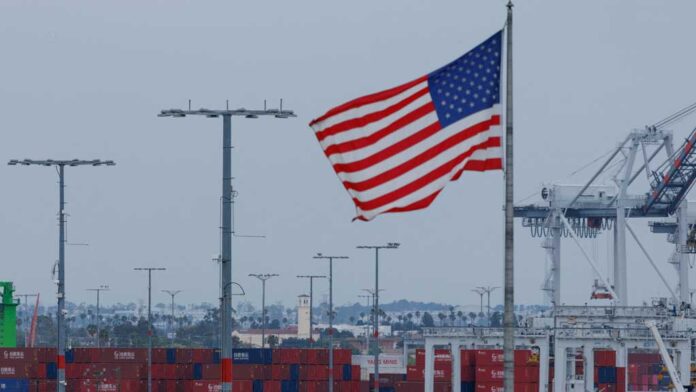U.S. Treasury Secretary Scott Bessent and chief trade negotiator Jamieson Greer are set to meet with China’s top economic policymaker, He Lifeng, in Switzerland this weekend for discussions that may mark an initial step toward easing the prolonged trade conflict destabilizing the global economy, according to U.S. and Chinese officials.
News of the planned talks, disclosed late Tuesday, caused U.S. equity futures to surge, reversing a two-day losing streak on Wall Street driven by growing anxiety over President Donald Trump’s sweeping tariff policies. S&P 500 emini futures climbed roughly 1%.
The meeting with Vice Premier He Lifeng is the first high-level exchange between U.S. and Chinese officials since Senator Steve Daines held talks with Chinese Premier Li Qiang in Beijing this March, following months of intensifying economic tensions and mutual tariff increases surpassing 100%.
According to sources familiar with the planning, both sides will likely explore reducing overall tariffs and removing duties on specific goods. Discussions may also touch on de minimis policies and the U.S. export control list. China’s State Council has yet to respond to a request for comment.
The U.S. and China have remained entrenched in a tit-for-tat tariff battle, reluctant to appear conciliatory in a trade war that has disrupted supply chains and rocked financial markets.
The U.S. Trade Representative’s office and the Treasury Department confirmed that Greer and Bessent will travel to Geneva on Thursday and will also meet Swiss President Karin Keller-Sutter to discuss bilateral trade negotiations.
“My sense is this will be about de-escalation,” Bessent told Fox News Channel’s The Ingraham Angle following the announcement. “We’ve got to de-escalate before we can move forward.”
Following the U.S. statement, a spokesperson from China’s commerce ministry acknowledged China’s agreement to the talks.
“On the basis of fully considering global expectations, China’s interests, and the appeals of US industry and consumers, China has decided to re-engage the U.S.,” the Chinese statement said.
“There is an old Chinese saying: Listen to what is said, and watch what is done. … If (the US) says one thing but then does another, or attempts to use talks as a cover to continue coercion and blackmail, China will never agree.”
The Trump administration has sent mixed messages about trade discussions, even as it scrambles to finalize deals with other major partners hoping to avoid U.S. tariffs. Bessent told lawmakers earlier Tuesday that trade talks were ongoing with 17 nations, excluding China for now, and that deals with some could be announced shortly.
Before meeting with Canadian Prime Minister Mark Carney, Trump told reporters he and his trade team will review potential agreements over the next two weeks to determine which ones to approve—a statement that triggered market jitters.
In an interview with Fox News, Bessent said Saturday’s meeting with China would help define the agenda for future discussions: “Look, we have a shared interest that this isn’t sustainable. And 145%, 125% is the equivalent of an embargo. We don’t want to decouple. What we want is fair trade.”
Widening Trade Gap
Trump’s tariff actions—10% on most nations starting April 2, with increases to follow on July 9 unless individual agreements are reached—also include 25% duties on automobiles, steel, aluminum, and on imports from Canada, Mexico, and China. Tariffs on pharmaceuticals are reportedly forthcoming. In retaliation, China raised its own tariffs on U.S. imports to 125%, while the EU is preparing its own countermeasures.
“I look forward to productive talks as we work towards rebalancing the international economic system towards better serving the interests of the United States,” Bessent said in a statement.
Ironically, Trump’s stated goal of reducing the U.S. trade deficit seems to be backfiring. The Commerce Department reported Tuesday that the deficit hit a record high in March, driven in part by a surge in imports from companies seeking to beat the tariffs. This contributed to a contraction in GDP during the first quarter of 2025—the first such decline in three years.
Pharmaceutical imports, in particular, skyrocketed in anticipation of potential new duties. However, the trade gap with China narrowed significantly, reflecting the impact of Trump’s harshest tariffs.
Progress With Britain
The U.S. and the UK are reportedly nearing a trade deal involving reduced quotas on steel and automobile tariffs, though British officials cautioned that a final agreement remains uncertain. Ongoing negotiations are still addressing the UK’s digital services tax.
Bessent also said that other nations, including Indonesia, have offered “very good” proposals to reduce tariffs and cut subsidies.
Meanwhile, Trump floated the possibility of revisiting the United States-Mexico-Canada Agreement (USMCA), signed during his first term and up for review next year. “Although he questioned whether that was ‘even necessary,'” he suggested renegotiation might be considered.
Carney later confirmed no decisions on tariffs were made during his meeting with Trump.



